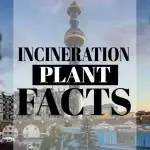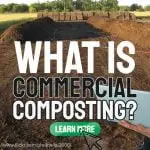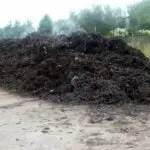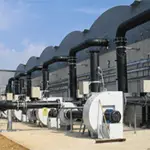Solid Waste Management is the activity of collecting, processing, and disposing of society’s solid waste in a safe and sustainable manner, to ensure the health of each citizen is not impaired by rotting wastes, and physically obstructed thoroughfares.
“Society's systems to deal with waste, in a sustainable way at minimum cost”
In recent years in developed nations street cleansing has become routine, and of course, also includes the removal of anything unsightly as well.

Solid waste management efforts have in the past decade, mostly been directed at developing environmentally sound systems of minimizing, reusing, and recycling waste. What waste that then remains, known as “residual waste” or “black bag waste”, is then still further processed to produce valuable products, or if that is not possible the organic content is reduced before what then remains is sent to the destination of last resort: landfill.
The way that society, in the industrialized nations, disposes of rubbish has changed greatly in recent years. For example, solid waste is now not dumped into seas or unlined pits, and healthcare (medical) wastes are no longer disposed of with household waste, due to the risks they hold for injury and infection.
For most industrialized states today, solid waste management is a growing multiple billion dollar business which is vital to the survival of urban communities. Just imagine how difficult it is in the cities if even one week’s waste is left on the streets, and how soon that waste would start to smell, harbour vermin, and just physically clog up all of our transport links.
Rubbish collection agencies remove millions of tons of rubbish annually and sort it for recycling or final disposal. In towns and cities and rural areas, the government organises weekly or fortnightly collections. Only in the most remote areas are the public required to bring their waste to the landfill, or a collection point.
As a result, the solid waste management charge on local taxes (rates) has become a substantial sum for each resident to pay for waste collection and disposal.
Ancient solid waste management was such that its investigation has become the mainstay of archaeology. Early solid waste management consisted of digging pits and discarding all types of rubbish into them.
This made these “middens” a treasure trove for archaeologists who have been able to piece together a huge body of evidence of the sorts of lives that folk lived. Modern microscopic and carbon dating techniques have revealed how folks ate, the materials they used to make implements and a wealth of other insights into the everyday existence of our ancestors.
In the past, when local authorities did not make collections, and before many towns started to gear themselves up for regular community rubbish collection, ad-hoc recycling did take place very effectively. Rag and bone men would buy these items from folk and recycle them. The wealthier people would make their own arrangements for contractors to remove and dump their waste. However, in those days before plastics and when most people could burn their scraps on open fires, the quantity of waste produced was much less than today, and most of it would compost itself naturally when dumped even if dumped inappropriately.
Most solid waste management collection and disposal contracts are set by community government departments. The companies bid for contracts set to run for a specified term before they are thrown open for a re-bid. The bidder prepared to charge the least while undertaking the disposal obligations specified generally wins the work.
Therefore, the waste management system is a central element of the framework of a civilized society. Good solid waste management uses technologies, systems and strategies that support government initiatives and drive sustainable practices forward, maintaining and improving physical environments and bettering the health of communities.
Caring for the air, land, water, and natural ecological resources for the public's health is basic in attaining the long term objectives of sustainability in solid waste management. As waste generation continues to grow more rapidly than population, the movers and shakers in MSW services must work hard to face up to these significant challenges.
Solid Waste Management is the activity of collecting, processing, and disposing of society’s solid waste in a safe and sustainable manner, Understand what that entails by reading this article.
Incineration Plant Facts
A first of our waste incineration plant facts is that a “burner” (this being the derogatory term of the anti-incinerator capaigners) is an important facility for the preservation of public health as it involves protecting the environment in a number of ways. Unless the waste materials are properly disposed of by the waste incinerator plant, […]
What is Commercial Composting?
We were recently asked; “What is Commercial Composting” and since one person asked we wrote a definition, as follows below: Commercial composting is the composting carried out principally as a method of waste disposal that diverts this organic waste away from landfills. If the feedstock is green waste or another “MSW residual waste” organic material […]
Windrow Composting
Windrow composting is a way of generating compost by piling organic matter into extended rows or arc-like piles. The piles are turned over by large machinery to preserve even levels of heat, humidity, and oxygen content. Piles will usually range from four to eight feet tall and 14-16 feet in length. Windrow composting is a […]
Large In-vessel Composting Systems: What are They and How Do They Work?
Progressive cities and many urban centers around the world are now installing large-scale in-vessel composting systems as part of their total MSW management. Large scale in-vessel composting, which makes high quality compost through the use of enclosed “reactors” that closely monitor temperature and oxygen levels throughout the biodegradation of organic materials, is popular. In-vessel composting […]




